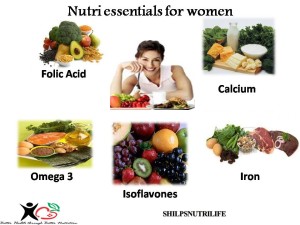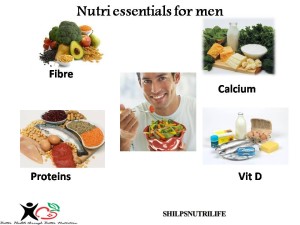Nutrition Nutrition week 1st September to 7th September 2016
“Life cycle approach for better Nutrition”
Today we talk about Nutrition during adulthood.
By the time we reach adulthood, the majority of our growth and development will be well and truly over, meaning the focus of nutrition can now shift to maintaining a healthy and active lifestyle. In doing this, adults will be able to keep the risk of developing age and weight related diseases such as cardiovascular disease and type 2 diabetes to an absolute minimum.
There are certain nutrients which become particularly important as we get older, including the following:
Calcium
Calcium is an essential component for the maintenance of healthy bones, but unfortunately may begin to be reabsorbed back into the body from the bones as we get older leading to osteoporosis, weakening of the bone tissue which leaves bones brittle and fragile. In order to reduce the risk of osteoporosis and to keep the bones healthy, individuals can obtain calcium from milk and dairy foods such as yogurt and cheese, leafy green vegetables and calcium fortified cereals.
Fibre
Bowel problems can become an issue as we age and many adults do suffer from constipation. In order to keep bowel issues and irritations to a minimum, adults should include an adequate amount of fibre in their diets as this will help to ensure the digestive system is healthy and in working order. Good sources of fibre include wholegrain cereal, porridge, wholegrain bread, brown pasta and rice, fresh fruit and vegetables and pulses. Also remember to drink plenty of fluids as this will help the gut to function properly.
Fluid
As we get older the body’s ability to conserve water gradually decreases and the perception of thirst becomes less sensitive. However, dehydration can result in drowsiness and confusion among other side effects so it is important to keep hydrated throughout the day even if we don’t feel thirsty. Fluid intake does not necessarily mean just water and can also include hot drinks such as tea and coffee, buttermilk, juices,coconut water.
Folic Acid
Fortified cereal, green leafy veggies,whole grain cereal.
Iron
Iron can be found in meat, some vegetables and dried fruit. The body uses it to make haemoglobin, which helps to store and carry oxygen in the red blood cells from the lungs to the rest of the body.
Vitamin C
This vitamin assists the body in its formation of collagen, which is needed to heal wounds and repair bones and teeth. It’s also needed to make skin, ligaments, blood vessels and tendons and it’s antioxidant properties are thought to help in the prevention of heart disease and cancer.
Fresh fruit and vegetables are the main source of vitamin C but supplements can also be taken to keep levels topped up.
Vitamin D
Vitamin D helps the body to absorb calcium thus slowing the rate of calcium loss from bones. A key source of Vitamin D is exposure to sunlight, though it is important to supplement your diet with foods which are rich in the nutrient such as oily fish, eggs and certain fortified cereals and spreads. As you get older you may need to introduce a vitamin D supplement to your diet as your body may be unable to process enough from the sunlight and your diet alone.
Zinc
Zinc is required for the maintenance of a healthy immune system and is most commonly found in meat, shellfish, wholemeal bread and pulses.
Omega 3
Wild salmon, halibut, non-white tuna, sardines, walnuts, Flax seeds, Pumpkin seeds
Isoflavones
soy, red wine, purple grapes, pomegranate, cranberries
Develop and maintain healthy diet and lifestyle patterns and have a physical exam each year to prevent and diagnose early your treatable health issues.







